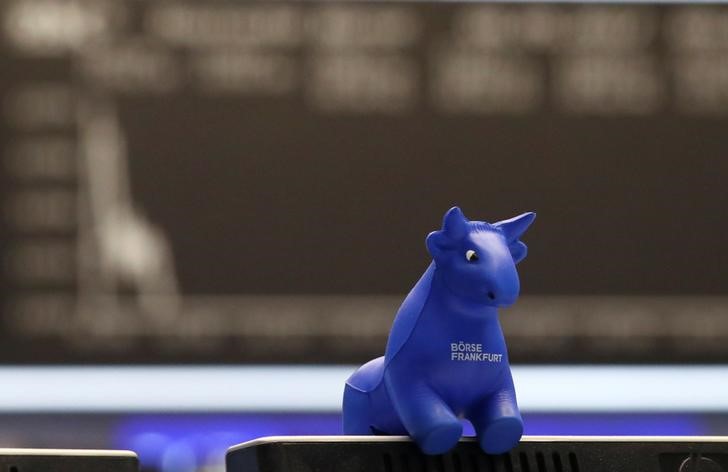By Peter Nurse
Investing.com - European stock markets are expected to open lower Monday, starting the week on a cautious note as investors assess the outlook for global economic growth amid rising geopolitical tensions.
At 2:05 AM ET (0605 GMT), the DAX futures contract in Germany traded 0.3% lower, CAC 40 futures in France dropped 0.4% and the FTSE 100 futures contract in the U.K. fell 0.6%.
European equities are seen suffering from a weak handover Monday, with U.S. stock futures lower ahead of a spate of difficult retail earnings reports while shares in Asia gave up early gains after disappointing economic data from China, the region’s main economic driver.
China's April retail sales plunged 11.1% on the year, almost twice the drop forecast, while industrial output fell 2.9% instead of the slight increase expected, illustrating the deep damage COVID lockdowns were doing to the world's second-largest economy.
Back in Europe, the European Union publishes its economic forecasts later in the session, and the market will be looking to see the impact of the Ukraine war and soaring inflation on growth expectations. In February, the EU economy was expected to grow by 4.0% in 2022 and by 2.8% in 2023.
Investors will also be keeping a close eye on geopolitical developments as Finland and Sweden moved closer to applying for membership in NATO, ending years of neutrality as Russia’s invasion of Ukraine forced the two Nordic nations to reassess their positions.
The entry of Sweden and Finland would significantly extend the alliance’s border with Russia, a move that will annoy Moscow which has consistently warned the pair of potential consequences.
In the corporate sector, Ryanair (IR:RYA) will be in the spotlight after the budget airline, which operates more flights than any other European carrier, posted an annual 355 million euro ($369 million) loss to the end of March, hoping for a return to "reasonable profitability" this year amid a lot of uncertainty.
Renault (EPA:RENA) announced Monday it will sell its majority stake in carmaker Avtovaz to a Russian science institute, with the French carmaker adding the deal included a six-year option to buy back the stake.
Oil prices weakened Monday on signs of weakening Chinese demand but remained at elevated levels as the European Union prepared an import ban on Russian crude, further roiling global supply.
China, the world’s largest importer of oil, processed 11% less crude in April than a year earlier, according to data released earlier Monday, with daily throughput falling to the lowest since March 2020 as refiners slashed operations in the face of dwindling demand due to widespread COVID-19 lockdowns.
By 2:05 AM ET, U.S. crude futures traded 1.4% lower at $107.08 a barrel, while the Brent contract fell 1.8% to $109.08.
However, both benchmarks posted sharp gains on Friday, and the WTI contract recently posted its highest level since March 28, with the European Union still expected to agree to a phased embargo on Russian oil this month despite concerns about supply in eastern Europe.
Additionally, gold futures fell 0.2% to $1,804.89/oz, while EUR/USD traded 0.1% lower at 1.0400.
